- Home
- Georgette Heyer
The Conqueror Page 13
The Conqueror Read online
Page 13
She did not leave smiling; one would have thought the warning had almost set her purring.
‘He is my liege-lord, and dear to me,’ Raoul went on, ‘but I have come to know his temper. Lady, I must say God help you if you unleash the devil in Normandy.’
He meant well, but blundered. Such talk made Matilda lick her lips. To unleash the devil in a man was an ambition very likely to appeal to her. Had he a devil? Eh, what woman could resist the temptation to see for herself?
At the end of a week the Duke withdrew to his own Frontier. From Eu he dispatched an embassage to Lille with formal proposals for Matilda’s hand. The question of affinity went by the wind; not anything his councillors could say had the power to make him delay further. He chose Raoul for his envoy and would not by any means heed his gentle dissuasions. In desperation, Raoul said: ‘Beau sire, you will have Nay for an answer, and that is what you have not yet learned to take.’
‘Yea or nay, an answer I will have,’ William answered. ‘Heart of God, this siege has lasted over-long already! Go demand the keys of that citadel in my name!’
The embassage set forth upon the following day, and came in due course to Lille, where no doubt it was expected. The noble escort was received with all courtesy, and the envoys led in due season to Count Baldwin’s audience-chamber.
Montgoméri accompanied Raoul; both went richly dressed, and as solemn as befitted the occasion.
The audience-chamber was filled by the Flemish nobles and councillors. At one end of the room the Count sat enthroned on a dais, with his lady beside him, and Matilda upon a stool at his left hand.
Raoul and Montgoméri came up the hall attended by their squires. They were accorded a suave welcome, but the Lady Matilda raised her meek eyelids for a moment and sent a straight look at Raoul that boded little good.
He came to his business at once, and recited the Duke’s proposals to the silent Court.
He ceased, and a murmur rose, and died again. The Count stroked the miniver that edged his mantle, and spoke conventional phrases. He was sensible of the honour done his daughter, he said, but this was a question not to be decided without deliberation and good advice.
‘The Duke my master, lord Count, believes you to have been aware of his mind these many days,’ Raoul said with a disarming smile.
The Count glanced towards his daughter. It was plain he was not at ease. He touched again on the problem of affinity, and seemed as though he would be glad to shelter behind it. Acting on his instructions Raoul pushed that barrier down.
‘The Duke my master has very reasonable hopes, lord Count, that this hindrance may be overcome. It must be known to your puissance that the Prior of Bec is even now in Rome, and sends us comfortable tidings.’
Count Baldwin thereupon embarked upon a speech of some length. The gist of it was that he would be pleased to ally his house with Normandy, but that his daughter, no longer a maiden to be disposed of at will, might feel some repugnance towards a second marriage, and must be allowed to give her own answer.
Perhaps only Raoul had an inkling of what she would say. Certainly the Count had none, nor his Countess, obviously taken by surprise.
The Lady Matilda rose slowly to her feet, and made a reverence to her father. Speaking in a cool, very audible voice, and with her hands clasped demurely together, she said, picking her words: ‘My liege and father, I thank you for your care of me. If it be your will that I should wed again be sure that I know my duty towards you, and will show myself obedient to your commands as befits my honour and yours.’ She paused. Watching her close, Raoul saw the smile lift the corners of her mouth, and was prepared for the worst. Veiling her eyes she said: ‘Yet let me beseech you, beau sire, that you will bestow my hand upon one whose birth can match with mine, and not, for the sake of our honour, permit the blood of a daughter of Flanders to mingle with that of one who is basely descended from a race of burghers.’ She ended as coolly as she had begun, and making a second reverence went back to her stool and sat down, looking at her hands.
A stricken silence hung heavily over the company. There were startled looks, and men wondered how the Norman envoys would stomach this insult.
Montgoméri flushed, and took a step forward. ‘Rood of God, is this to be our answer?’ he demanded.
Raoul intervened, addressing himself to Count Baldwin. ‘Lord Count, I dare not take such an answer back to my master,’ he said gravely. Surveying the Count’s shocked face he came to the conclusion that the discourteous reply had been prepared without his knowledge. Curbing Montgoméri with a frown, he said: ‘My lord, I await Flanders’s reply to my master’s proposals.’
Count Baldwin availed himself of the loophole gratefully. He rose to his feet, and made the best of a bad business. ‘Messires,’ he said, ‘Flanders is sensible of the honour done her, and if she is obliged to decline it, it is with regret, believe me. We should be glad indeed to bestow our daughter in marriage on the Duke of Normandy, were it not for the repugnance the Lady Matilda feels towards a second marriage.’ So he began, and went on at length, smoothing away the insult. The envoys withdrew, one thoughtful, the other smouldering with indignation. What Count Baldwin said to his daughter is not known, but it is certain he sent for Raoul de Harcourt late that evening and was closeted with him alone for a full hour.
‘By the Mass, Messire Raoul, this is a very ill business,’ the Count said, greatly perturbed.
‘Pray God it may not be worse mended,’ agreed Raoul dryly.
This seemed poor consolation to a harassed man. ‘I call you to witness, messire, those discomfortable words were none of mine.’
‘Count,’ said Raoul smiling, ‘for my part I judge it best to forget what women say.’
The Count was relieved, but Raoul added significantly: ‘There were others present beside myself, lord.’
‘Spine of God!’ said the Count irritably, ‘there was never trouble yet but a woman made it!’
His daughter would no doubt have been flattered. Coming away from the Count’s room presently Raoul stumbled against Matilda in the gallery. He put out his hand quickly to steady himself and her, and felt the throb of her pulse beating against his fingers. In the lantern-light her face was no more than a pale blurred oval, but he could see the green flame of her eyes. He held her wrist still, and she suffered him. She spoke in a whisper, staring up at him. ‘Carry my message safe, messire, I charge you.’
‘God aid, I shall do my best to forget it,’ answered Raoul. He put his hand on her shoulder. ‘Were you mad, lady, to speak such words? Is this to deal nobly? Heart of a man, you have cut a weary road for yourself.’
Low laughter broke from her, lacking mirth. ‘Let him know how I think of him. I am not for him.’
Raoul let her go. He did not understand her, but it seemed to him that something more than hatred inspired her. ‘God send your laughter change not to tears,’ he said.
He would have passed on but she slipped in front of him. ‘Bear my message,’ she repeated.
‘Lady, I wish you too well. What folly rides you? What do you look for?’
She clasped her hands round her neck. ‘Maybe I am too much a woman to know.’ Her hands fell away; she stretched them out to Raoul. ‘Tell him I am guarded yet!’ There was a note of challenge in her voice; she looked anxiously into his face.
‘Lady, are you so sure?’
The arrow was shot at random, but seemed to find a mark. She drew back, and he heard the hiss of her breath indrawn between her teeth. He went to his own quarters, wondering at her, and afraid of her.
In a cooler mood Montgoméri had sense enough to see that what they had heard was not by any means fit for the Duke’s ears. He agreed to keep silence, but harped continually on the insult all the way back to Eu. The first face Raoul saw there was that of Mabille, Montgoméri’s wife, and he could have sworn a
loud from vexation. Young as she was, this lady, daughter and heiress of Talvas, the exiled Lord of Belesme, had already made a name for herself as a spinner of mischief. Raoul was very sure that she would get what news she wanted out of Montgoméri.
The Duke received his envoys with a certain formality. Raoul gave him Baldwin’s smooth answer, and watching keenly he could detect no change in William’s face. The Duke said nothing for a moment or two, but presently, raising his eyes, he asked: ‘What said the Lady Matilda?’
Roger de Montgoméri showed himself ill at ease, and began to fidget. Raoul answered serenely: ‘She bade me tell you, beau sire, that she was guarded yet.’
William gave a brief laugh. ‘Ha, brave words!’ He frowned down at his clenched hands. ‘So!’ he said thoughtfully. ‘So!’ He looked up, and dismissed the envoys with a few curt words. Raoul went off with Gilbert d’Aufay on his arm; Roger, still embarrassed, drifted out to see his lady.
It was impossible to discover what Mabille had to gain by the part she played. Those who hated her, and there were many, swore that a natural fiend possessed her. However this may have been, she certainly got all his news out of Montgoméri, and lost no time in turning it to wanton account.
She sat on one side of the Duke at supper. There was some light talk passed between them; as the meal drew to a close, and wine had mellowed the company, Mabille, looking at him with a sparkle in her eyes, complimented the Duke upon his good spirits.
‘Why not, lady?’ he retorted.
Mabille had a voice that was like honey, sweet and insinuating. She said softly, leaning towards him: ‘Beau sire, what is she like, this cruel fair who is so hard to please?’
William showed signs of a gathering frown, but answered pleasantly enough. Mabille’s hand slid along the arm of his chair; her eyes lifted slowly to his face; she whispered: ‘Dear seigneur, you bear her insults right princely.’ Her fingers brushed his sleeve: her lips were tremulous, her vision clouded; you would have sworn the woman to be all melting tenderness. ‘Ah, but how dared she?’ She reared up her head, as though in quick indignation, but then drooped it again. ‘Pardon, seigneur! it was my loyalty spoke.’
Across the table Montgoméri passed his tongue between his dry lips. He cast a glance towards Raoul, but Raoul was out of earshot.
William set down his cup with a snap. ‘Death in life, madame, what is this?’ he demanded.
She appeared confused. ‘Beau sire, pardon! I have said too much,’ she faltered. She looked in a frightened way towards her lord, who was by now in a stew of apprehension.
The Duke took account of that look, as indeed he was meant to. ‘By the Face, I think you have said too much or too little!’ he said. His eyes flashed to Montgoméri’s face. They held some menace, but he shut his lips on further speech, and presently turned to bestow his attention on the Count of Eu. He left the board presently, apparently in good spirits, but if Montgoméri hoped to hear no more of the matter from him he was soon disappointed. A page brought a summons to him to attend the Duke in his chamber; he went off with a backward glance of reproach at his lady. She was smiling and content, a devil with the face of an angel, he thought with a stab of bitterness.
He found William alone, pacing the floor of his chamber. William crooked a beckoning finger. ‘Enter, my honest messenger, enter! What do you tell your lady that you keep hid from me?’
Montgoméri floundered into speech, lost himself in a flood of words, and begged the Duke to ask Raoul de Harcourt for the truth.
The Duke crashed his fist down on the table. ‘Splendour of God, Montgoméri, I am asking you!’
Montgoméri said unhappily: ‘Beau sire, the Lady Matilda spoke unadvisedly, as women will. We had our answer from the Count’s puissance, as was faithfully reported to your Grace.’
‘Montgoméri, speak!’ The Duke’s voice made Montgoméri start nervously.
‘Beau sire, with respect I say that I was no more than the companion of the Chevalier de Harcourt. From his lips you should learn what chanced at Lille.’ He encountered a look that made him goggle, and added hastily: ‘Seigneur, if we did ill to withhold the Lady Matilda’s words from your ears it was out of love for Your Grace, and because it was not felt by us that those words were meant for you to hear.’
‘By God and His Mother, Montgoméri, I think you did very ill when you told your lady what you dared not tell to me,’ said the Duke terribly.
With this the unhappy man felt himself to be in full accord. He stood straight, and said with what dignity he could muster: ‘I am at your mercy, beau sire.’
The Duke replied: ‘Let me have the truth without more ado.’
‘Beau sire, the Lady Matilda said that she would obey her father in all things, but she prayed him, if he would bestow her hand in marriage, to choose for her a groom whose – who was – Seigneur, the Lady Matilda used certain words concerning your Grace’s birth which I dared not repeat.’
‘I think you had better repeat them, Montgoméri,’ said the Duke in a still voice that was like the lull before a storm.
Looking at the ground, Montgoméri said: ‘The Lady Matilda desired her father not to give her in marriage to one who was not born in wedlock, beau sire.’
‘Ha, God! Was there no more than this?’
His first indignation rose up again in Montgoméri. ‘Yea, there was more,’ he said, forgetting caution. ‘The lady used very injurious terms towards you, lord, and dared to say her blood should not mingle with that of one who was basely descended from a race of burghers.’
Raoul entered the room in time to hear these unwise words. Even as he shut the door he knew that it was too late to attempt to soothe or to palliate. Montgoméri, in obedience to a signal from him, escaped thankfully, and made up his mind to stomach in silence his low-spoken: ‘Go, prating fool!’
Raoul set his back to the door, and listened with calm deference to the first outburst of William’s rage. At a convenient moment he said: ‘Montgoméri told his tale ill. It is true she spoke those words, but she spoke them out of a woman’s desire to wound what she maybe likes too well for her heart’s peace. I believe you would do wisely to ignore her.’
‘Bowels of God, I will make her repent in tears of blood!’ William swore. ‘Ah, proud widow! Ah, insolent dame!’ He began his restless pacing again. ‘She will not have me for a lover. Then, by the Cross, she shall taste of my enmity!’ He stopped short by the window, and stared out at the sailing moon. His fingers gripped the stone ledge; he laughed suddenly, and turning, said: ‘I am for Lille. If you ride with me, come! If you choose to stay, bid my page Errand saddle his horse.’
‘My thanks, beau sire. I think I will ride with you. But to what avail?’
‘The Lady Matilda has misread me,’ the Duke said grimly. ‘She sent such a message as one might send to a nithing, a man of no weight. Well, I will school her.’
More he would not say, nor could he be turned from his resolve to set out at once for Lille. Seriously alarmed, Raoul went off to bespeak the horses and to drop a word in the Count of Eu’s ear. He hoped that half an hour’s reflection might bring about some change in William, but was disappointed. When he saw him again the Duke seemed cool enough, but would listen to no entreaty, either from Raoul or from his cousin of Eu. Robert was between laughing and scowling, but knew his lord well enough to be sure no words spoken of man would turn him when he had that look in his face. He feared some foolhardy act of daring which the Duke had not yet outgrown, and exchanging a rueful glance with Raoul, he ventured to suggest that an armed escort should accompany William. This was refused with a scornful snap of the fingers. William flung himself into the saddle, and rode off at a gallop.
‘Soul of a virgin, I fear him!’ ejaculated Count Robert. ‘The devil is loose, Raoul!’
Raoul gathered up Verceray’s bridle in his hand, and grinned. ‘Give us G
od-speed on this – love-quest!’ he said, and vaulting into the saddle, galloped off in the Duke’s wake.
There was no tarrying upon the journey. Ground that had taken the embassage two days to cover the Duke covered in a night. He stopped only once, at dawn, to change horses at a certain place on the road. He would rest nowhere; what food he ate was eaten standing, and in haste. He said little, but the nearer he got to Lille, the more impatient he grew. Raoul, aching with fatigue, was shaken by a fit of silent laughter. He was too tired to wonder any longer how the Duke meant to approach Count Baldwin’s daughter, but he felt that William was in no state to present himself at that elegant court. Travel-stained, powdered with dust, he looked more like a hasty messenger than a ruling prince, but it was of no use to point this out to him. Raoul was not even surprised when he dashed headlong through the narrow streets of Lille to the palace gates, and through them without a check.
At the entrance to the great hall the Duke was recognized. A startled page gaped at him, and called to his fellows. Several people came hurrying up as William swung himself down from the saddle, and there was much bowing, and many tentative, apprehensive inquiries, and offers of escort to a bedchamber. The Duke thrust all these aside with no ceremony at all. He told Raoul to hold his horse. ‘What I have to do here will not keep me long,’ he said, and strode past the polite gentlemen into the palace.
There were some six or seven men in the hall awaiting the supper-hour. Tostig called out: ‘Bones of God, it is Normandy! What is your haste, Duke William?’
One of the Flemish nobles sprang up, and began to say that the Count and his sons were expected to return from a hawking at any moment. He broke off in the middle of this, for it was plain that the Duke was not listening. He clanked through the hall, and was gone up the narrow stair before anyone had time to do more than rub his eyes. It was seen that he wore his sword at his side, and carried a whip in his right hand.
In consternation the Flemings stared at one another. It seemed to them that the Norman Duke had gone moon-mad.

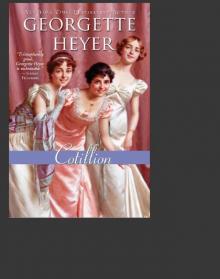 Cotillion
Cotillion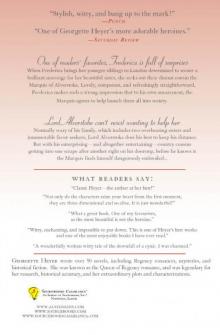 Frederica
Frederica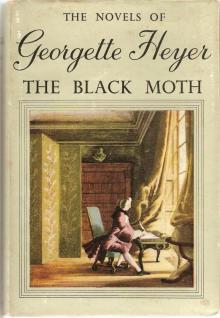 The Black Moth: A Romance of the XVIIIth Century
The Black Moth: A Romance of the XVIIIth Century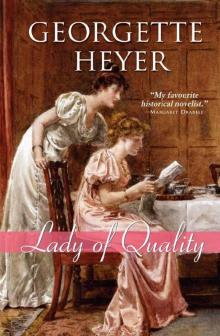 Lady of Quality
Lady of Quality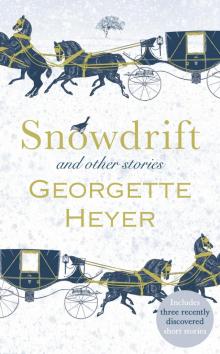 Snowdrift and Other Stories
Snowdrift and Other Stories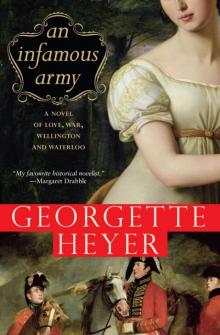 An Infamous Army
An Infamous Army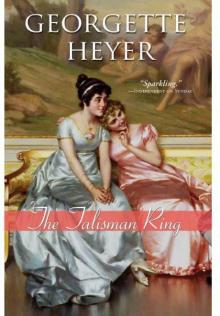 The Talisman Ring
The Talisman Ring Venetia
Venetia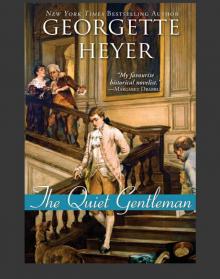 The Quiet Gentleman
The Quiet Gentleman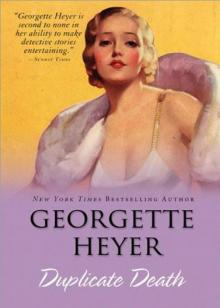 Duplicate Death
Duplicate Death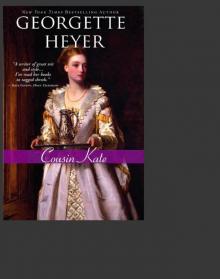 Cousin Kate
Cousin Kate Black Sheep
Black Sheep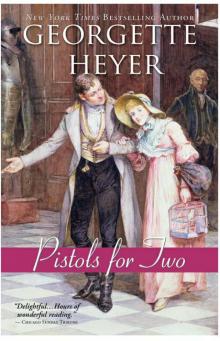 Pistols for Two
Pistols for Two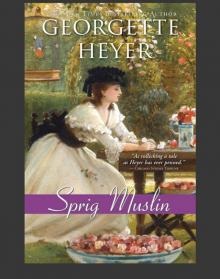 Sprig Muslin
Sprig Muslin No Wind of Blame
No Wind of Blame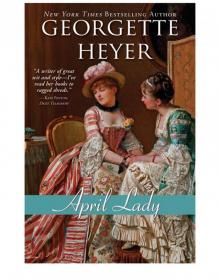 April Lady
April Lady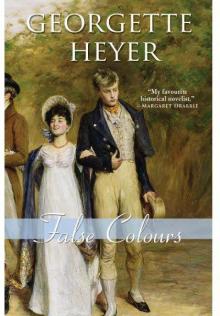 False Colours
False Colours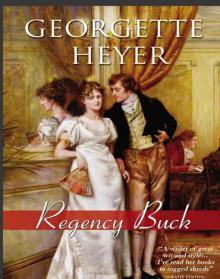 Regency Buck
Regency Buck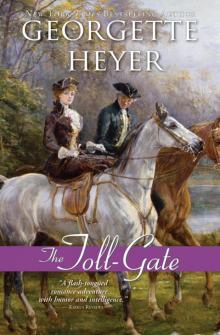 The Toll-Gate
The Toll-Gate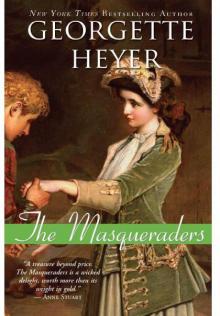 The Masqueraders
The Masqueraders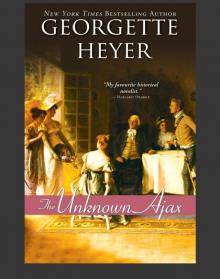 The Unknown Ajax
The Unknown Ajax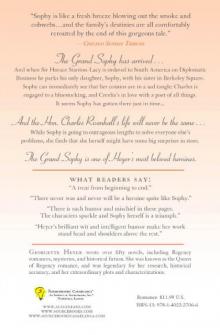 The Grand Sophy
The Grand Sophy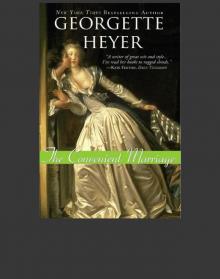 The Convenient Marriage
The Convenient Marriage Faro's Daughter
Faro's Daughter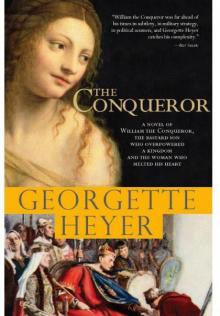 The Conqueror
The Conqueror The Foundling
The Foundling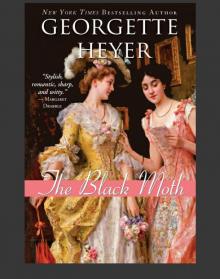 The Black Moth
The Black Moth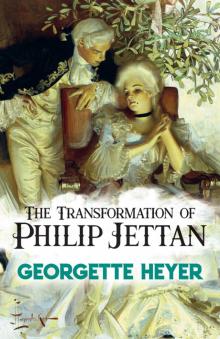 The Transformation of Philip Jettan
The Transformation of Philip Jettan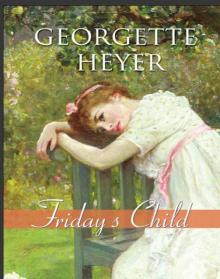 Friday's Child
Friday's Child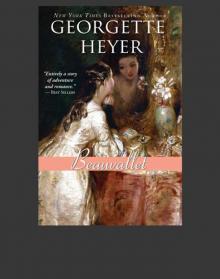 Beauvallet
Beauvallet They Found Him Dead
They Found Him Dead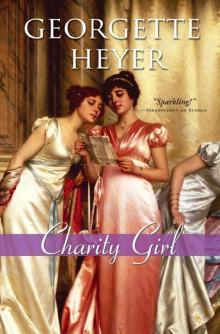 Charity Girl
Charity Girl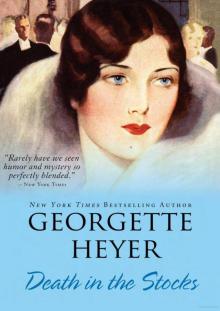 Death in the Stocks: Merely Murder
Death in the Stocks: Merely Murder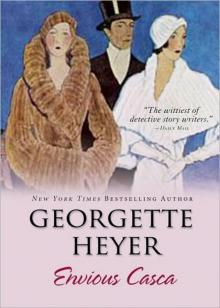 Envious Casca
Envious Casca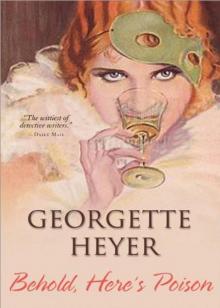 Behold, Here's Poison
Behold, Here's Poison Arabella
Arabella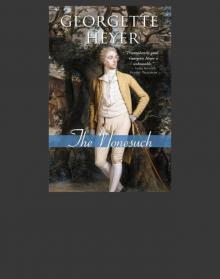 The Nonesuch
The Nonesuch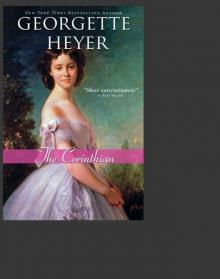 The Corinthian
The Corinthian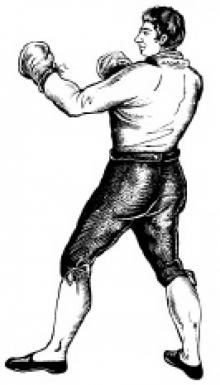 Jennifer Kloester
Jennifer Kloester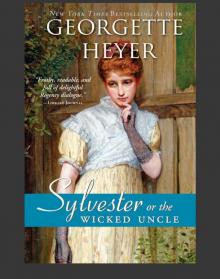 Sylvester
Sylvester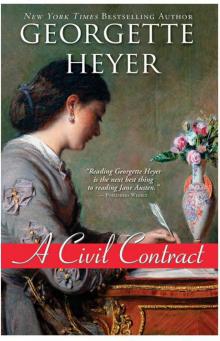 A Civil Contract
A Civil Contract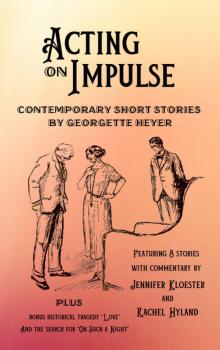 Acting on Impulse
Acting on Impulse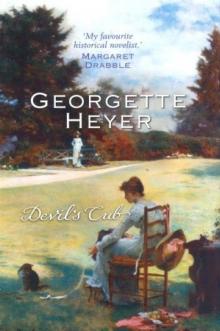 Devil’s Cub at-2
Devil’s Cub at-2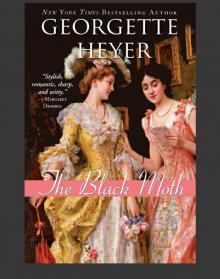 Black Moth
Black Moth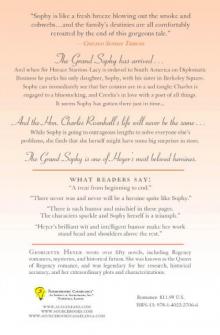 Grand Sophy
Grand Sophy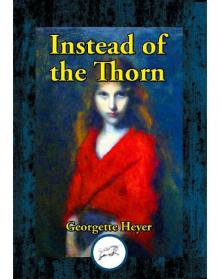 Instead of the Thorn
Instead of the Thorn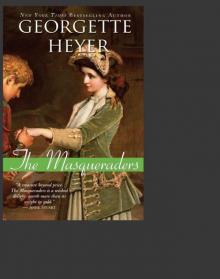 Masqueraders
Masqueraders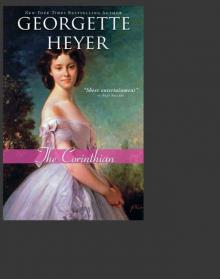 Corinthian
Corinthian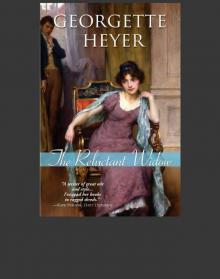 Reluctant Widow
Reluctant Widow